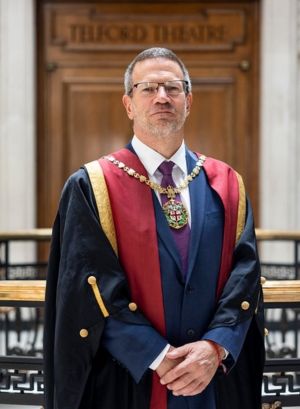-
-
- Advancement of the Professions Committee
- Standards Committee
- Audit and Risk Committee
- Education Committee
- Disciplinary Committee
- Charter Case Committee
- Preliminary Investigation Committee and Disciplinary Committee Liaison Committee
- Registration Committee
- Preliminary Investigation Committee
- Paper classification: some definitions
-
-
-
-
- About extra-mural studies (EMS)
- EMS requirements
- Information for vet students
- Information for EMS providers
- Information for vet schools
- Temporary EMS requirements
- Practice by students - regulations
- Health and safety on EMS placements
- EMS contacts and further guidance
- Extra-mural studies fit for the future
-
-
- Code of Professional Conduct for Veterinary Surgeons
- Code of Professional Conduct for Veterinary Nurses
- Contact the Advice Team
- XL Bully dog ban
- 'Under care' - guidance
- Advice on Schedule 3
- Controlled Drugs Guidance – A to Z
- Dealing with Difficult Situations webinar recordings
- FAQs – Common medicines pitfalls
- FAQs – Routine veterinary practice and clinical veterinary research
- FAQs – Advertising of practice names
- GDPR – RCVS information and Q&As
-
- Accrediting veterinary degrees
- Accrediting veterinary nursing qualifications
- Reasonable adjustments for student vets
- Health and disability in veterinary medicine study and practice
- The role of the veterinary schools and the RCVS
- Reasonable adjustments and the Equality Act 2010
- Reasonable adjustments and Day One Competences
- Examples of reasonable adjustments for vet students
- Annex
- Reasonable adjustments for student vets - summary
- Reasonable adjustments for student veterinary nurses
- Health and disability in veterinary nurse education and training
- Reasonable adjustments for students and the UK disability discrimination legislation
- Educational assessment of veterinary nurses
- Roles of key stakeholders in the application of reasonable adjustments
- Examples of reasonable adjustments for vet nurse students
- Embracing reasonable adjustments for student vet nurses - summary
- External review of the RCVS by ENQA
- Requirements for remote and online student assessments
RCVS introduces new accreditation and QA processes for postgrad qualifications
2 September 2025
Today [Tuesday 2 September 2025], we have introduced an updated process for the review and accreditation of postgraduate certificates delivered by external organisations, the completion of which would allow veterinary surgeons to apply for Advanced Practitioner (AP) status.
The new procedures align the criteria for accreditation of such postgraduate certificates with those in place for our Certificate of Advanced Veterinary Practice (CertAVP).
Previously, in addition to the review and approval of postgraduate certificates at the request of an education provider, a member applying for AP status who had completed a non-accredited qualification could ask for this to be considered for eligibility on an ad hoc basis by the relevant RCVS committees.
This process will now be changed so that only qualifications that have already been accredited by the RCVS can be used towards an application for AP status.
The change to this process means postgraduate certificates already approved by us for eligibility for AP status will, from March 2027, need to be re-accredited under the new quality criteria and will be subject to ongoing quality assurance checks.
In line with our commitment to ensuring consistent, high-quality postgraduate education, the RCVS Education Committee has established the Advanced Practitioner Qualifications Subcommittee, which will oversee the approval and monitoring of all relevant qualifications
To manage the transition and implementation of the new process, qualifications currently recognised as eligible for AP status will continue to be valid for 18 months. This allows qualification providers time to submit their documentation for review under the new system and means that vets currently enrolled on these programmes have sufficient time to complete them, should the provider choose not to reapply for accreditation.
 Professor Tim Parkin (pictured), RCVS President and Chair of the Education Committee said “The updates to the review process for qualifications for eligibility towards Advanced Practitioner status will help ensure that educational standards are robust and aligned with the CertAVP, whilst also retaining choice and flexibility for vets wishing to advance their clinical and professional knowledge.
Professor Tim Parkin (pictured), RCVS President and Chair of the Education Committee said “The updates to the review process for qualifications for eligibility towards Advanced Practitioner status will help ensure that educational standards are robust and aligned with the CertAVP, whilst also retaining choice and flexibility for vets wishing to advance their clinical and professional knowledge.
"This will, in turn, ensure that Advanced Practitioner status continues to be a meaningful recognition of a veterinary surgeon’s particular knowledge and skills in a designated field of veterinary practice and, in doing so, provide reassurance to clients and the public.”
Dr Linda Prescott-Clements, our Director of Education, added “The updated accreditation procedures will ensure that all qualifications that are eligible to be used towards the criteria for AP status are of equivalent educational quality. The process will also ensure that the advanced knowledge acquired as a result of completing these programmes is at an acceptable level in order to be considered as an RCVS Advanced Practitioner. The new accreditation process will consider the content of programmes as well as their educational quality including instructional design and appropriate assessment.”
Education providers wishing to submit their qualifications for review are encouraged to contact our Education Department for further information on the submission process on [email protected]